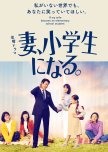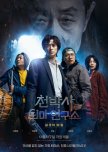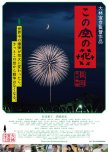
"Don't ever bite your own tail again!"
Hard Boiled was John Woo’s death filled cops and gun-runners ode to action films. A completely over the top, unrealistic, thrill a minute bloody carnival ride.Officer Tequila Yuen is determined to bring down the Triads running guns that caused the death of his partner. A loose cannon who doesn’t play by the rules, he ignores his boss’ warning about staying off the case. It’s not long before he runs into Alan, an origami making Triad assassin. He deduces Alan’s secret and the two reluctantly work together to bring down the deranged Johnny Wong’s gang.
What I liked:
What’s not to like about a Chow Yun Fat and Tony Leung Chiu Wai pairing? The screen could barely hold their bromantic charisma. I could watch these two in about anything. Phillip Kwok (Lizard Venom) as Mad Dog was right up my kung fu movie loving heart. Lo Meng (Toad Venom) made a brief appearance before he like hundreds of others-died. Kwok was also the action choreographer. Stuntmen flew through windows and fell off buildings, and with all of the bullets hitting and grenades exploding they rolled and were flung about the sets continuously. Chow Yun Fat’s signature move of diving through or over something with both barrels blazing was used several times. Bruce Law was the guy often called for car stunts and there were cars and motorcycles flying, flipping, and exploding everywhere. The stakes were high with hundreds of civilians and a nursery full of new born babies to worry about. Will someone please think of the children!
What I didn’t care for:
It was almost like John Woo wondered how many senseless deaths he could get away with. The gruesome deaths of innocents fleeing a hospital were disturbing in particular and also all the friendly fire deaths. One friendly death was caused because Tequila couldn’t stop taunting Alan instead of guarding the person relying on him for survival! I knew some film nerd would count the casualties for me-thank you Collider!: The body count for Hard Boiled was 305. Honestly, after the first 100 deaths it became monotonous watching the bad guys mow people down with automatic weapons or with RPG fire. Some of the fire fight casualties were funny. I understand a bullet can go through two as easy as one, but not when the people are standing side by side! It's apparent that the carnage had gotten out of hand when the bad guy named Mad Dog complained about the overkill.
While many people enjoyed the reckless slaughter of the masses, it didn’t work for me. I would have rated this film much higher if Woo had showed a modicum of restraint instead of characters gleefully gunning down anyone moving. Despite having some cute babies in the film to lighten things up, Hard Boiled was the kind of relentless gun porn that might have the average viewer wanting to take the dream trip to Antarctica that was talked about in the film. A place where there was always light after living with so much darkness. *
20 March 2024
*(Scientific quibble-Antarctica has light for six months out of the year, it’s dark the other six)
Considerați utilă această recenzie?

Tsuma, Shogakusei ni Naru
3 oamenii au considerat această recenzie utilă
"Isn't life too long to live that way?"
If My Wife Becomes an Elementary Student was actually an off-putting title for me as I’ve had some odd experiences with Jdramas. One, I worried that this would be one of those age gap VERY inappropriate dramas or if it wasn’t illegally weird the child actor would be awful. Neither of those concerns were fulfilled. There was one little segment that was uncomfortable but mostly this was a very wholesome drama about healing after suffering from devastating grief. I know what it’s like to wonder if the sky will ever be blue again after the loss of a loved one. For the most part this drama handled it well. And most importantly, the young actress playing the elementary school child was amazing.Keisuke and his 20-year-old daughter Mai have become zombies after the death of his wife ten years prior. The are alive but not living. One day 10-year-old Marika arrives at their house and claims she is Takae reincarnated. At first neither believes her but before long the two fully accept her as their beloved wife/mother. Slowly but surely, the sunny, responsible Takae begins to work her magic on everyone involved. The only question, is she here to stay?
With the exception of the initial encounters with Marika and Keisuke acting like an idiot, the drama portrayed the healing powers of love and reconciliation in a meaningful way. Takae helped the people around her reconnect to life by showing them how to plug back in. Maida Nono played adult Takae quite believably and also 10-year-old Marika. The entire drama hinged on her performance and she carried the weight beautifully on her tiny shoulders.
The nagging drawbacks to me were the substantial age differences for characters and actors. I’ve no problem with most age gaps, but at the time 58-year-old Tsutsumi Shinichi and 26-year-old Morita Misato (32 year gap) was a bit of a stretch. They couldn’t have found a more age-appropriate actress? The potential romantic partner was barely older than the actress playing his daughter! Keisuke was described as kind, innocent, and clueless, but at his age some of his responses were over the top ridiculous, even for a man whose wife returned in the body of an elementary school child. Marika’s mother was no prize but the loss of her child was never dealt with in a consequential manner.
Overall, I enjoyed this drama quite a bit. Second chances in life are rare, impossibly rare when a loved one has passed. And when that loved one is the center of a family’s world and the sunshine in their lives, it can feel like life has ended when their life ended. Even as wish fulfillment, it was beautiful to see these wounded people granted the chance to heal and have their rear-ends kicked when needed in order to remember they were alive and needed to live to the fullest in order to honor that precious gift.
26 November 2024
Considerați utilă această recenzie?

I Want Us Together
3 oamenii au considerat această recenzie utilă
Love in the time of Covid
I Want Us to Be Together was a sweet age gap romance starring Qin Lan and Fan Cheng Cheng. Cupid, in this instance, turned out to be Covid. When many people were figuring out they couldn’t live together anymore after quarantining in the early days of the novel virus, others found love.Yu Ge is going home for the New Year celebration to be with her parents and extended family. She says her parents are cool with her being single, but other relatives are more bothersome about it. Yu Ge auditions several men to play her boyfriend and ends up with Lin Bu Mian, a younger man who works at the same restaurant. Lin is nine years younger than her but beggars can’t be choosers. Her parents are overjoyed with the handsome young man and cannot contain their excitement. As the family prepares to travel to the gathering, they are told no one can leave. Everyone is going to learn a lot more about each other in the small apartment.
Qin Lan is a delightful actress who the very next year would have another age gap romance in the drama The Rational Life with Dylan Wang that was quite entertaining. In this short film the age gap was supposed to be nine years while in real life it was closer to twenty.
IWUtBT brought back memories of the early days of the pandemic. No one really knew how to deal with Covid or the best way to treat it or prevent it. Scary times with masks and quarantining. With all the fear and deaths the invisible enemy caused it was nice that something good came out of those dark times, even if it was a fictional romance.
19 November 2024
Considerați utilă această recenzie?

This story was on thin ice
Donnie Yen took a dramatic turn without the benefit of his martial arts skills in Comeback Home aka Polar Rescue. This family thriller about a lost child set in a beautiful snowy wilderness was marred by poor storytelling.A De and his family are on their last day of vacation having a blast playing in the snow at a resort. He has promised his son a trip to Lake Tian to see the monster living there. Finding the road closed due to inclement weather they take an alternate route where their car ends up stuck in a snowy pothole. A De and his wife manage to dislodge the car but their son Lele throws a fit and nearly gets everyone injured when another car comes up the road. When the eight-year-old’s temper tantrum escalates, A De leaves him there to teach him a lesson while he drives his wife and daughter to a nearby store. When A De returns, his son is nowhere to be seen.
I was looking forward to watching Yen in a non-martial arts film and he did fine here as the worried and hotheaded father. The winter scenery was gorgeous. The music while melodramatic fit the film. Where Polar Rescue slipped and fell was in the writing. A De’s initial response seemed utterly unbelievable for a caring father. At times the search and rescue teams were portrayed with all the propaganda they could fit in. At other times they were incompetent, unprofessional, and petty. If only perfect people were worthy of rescue, no one would ever be rescued. I found most of the characters’ actions baffling and at times infuriating.
Comeback Home had interesting moments and many that strained credulity. If you are a fan of Donnie Yen or family dramas where a member is in danger you might want to give this a try. Or if you are simply in need of a film with snow continuously falling. If you’ve ever known someone who has worked search and rescue or you need your thrillers to make a modicum of sense, you’ll want to avoid this one.
19 November 2024
Considerați utilă această recenzie?

The two female day clerks man the desk dutifully standing as guests enter the hotel and leave. One talks constantly about horror movies she’s seen as the other passively listens. Kai Lin, the quiet maid, follows her daily routine cleaning the rooms and general areas. The boss introduces Da Guan who will be handling the desk at night and tells him to familiarize himself with the hotel. When Da Guan is wandering around he notices Kai Lin doing one of her routines that is not quite normal.
The Wish Hotel is quite busy at lunch time when customers rent rooms for “romantic” meetings. The meetings keep Kai Lin busy and also reveal her proclivities to Da Guan. The maid doesn’t like change, but also doesn’t like her life. Only the “travels” of the guests perk her interest as do her actions for Da Guan.
Nothing overtly exciting happens in Wish Hotel, yet short films often reveal subtle rhythms and changes in the lives of those peered at. The daily routines run from the mundane to slightly out of the normal range, yet judgements aren’t made on the workers who cater to the customers who use the hotel for rest and recreation.
11 November 2024
Trigger Warnings: References to sexual activity but nothing shown.
Considerați utilă această recenzie?

"The roar of the dark sea is so far away yet I can still hear it"
Just when I thought I’d already seen Obayashi’s strangest film, he said, “Hold my beer.” I watched the short film, Emotion, twice and am still not sure I understand it. The acting was okay, the story surreal. What was amazing was the maddeningly creative editing Obayashi concocted like a sorcerer who had inhaled too many mushrooms in his dark laboratory.Emi is a young woman who lives by the sea and yearns to see more of the world. When she moves to the big city she meets mysterious Sari. They become fast friends until the day the man Sari loves falls in love with Emi. Sari gives in to the dark nature of her family…a family descended from vampires. At least I think that’s what happened. Lol
I cannot fathom how many editing cuts and splices were made for this film. Obayashi used every camera angle and trick available at the time. I caught more of the special effects the second time I watched it. Much like a silent film, the characters rarely spoke out loud. A voiceover in English and Japanese narrated the film. Intertitles occasionally appeared with the speed of a subliminal mind-altering torture. Poetry was spouted almost continually which elaborated more on emotions than plot. Different frames were bathed in solitary colors or simply black and white. Swirling, rocking scenes could be nausea inducing. You never knew what might appear next-bubbles, a random dog passing through, a dancing vampire with an umbrella, or a wild west shoot-out. Contemporary 1960’s music alternated with traditional music which added to the fanciful atmosphere.
To top everything off, behind the scenes footage was also used.
Much of the film could have been a dream or a young woman’s descent into madness. Coming of age, sexual awakening, friendship, desire, heartbreak, and jealousy all made an appearance. I’m not sure if incest or passing along the vampiric “gift” was shown. And whether a couple of scenes were about losing one’s innocence or rape.
Emotion was a complete mood film even if I wasn’t always sure what mood was being evoked at breakneck speed. It was an intriguing work of art more than compelling story. The short running time worked to the film’s advantage as it could be dizzyingly exhausting. Obayashi wasn’t afraid to inject humor throughout---never thought I’d see a vampire drink someone’s blood with a straw. If you are looking for something strange and different, Emotion qualifies on both counts.
"Do you like the sound of footsteps on the fallen leaves? Come. Night is falling."
26 October 2024
Trigger warnings: Suicide. Partial nudity.
Considerați utilă această recenzie?

Ninja, The Violent Sorcerer
3 oamenii au considerat această recenzie utilă
"We're all sick of Baker's vampires and bullying!"
Some movies are so bad they are good. Some movies are so bad they are bad. And then there is Ninja the Violent Sorcerer that is so bad it is WTF? Spliced and diced from The Stunning Gambling (1982) with new footage added for a story told in English, assumed director Godfrey Ho created a Frankenstein film of gambling, ninjas, a vengeful ghost, and hopping vampires.Gambling pro Mr. Myer, is tricked into killing himself during a gambling bet with the evil Mr. Baker. Myer’s dead wife appears in ghostly form to his brother Roger and tells him he must avenge her husband. Baker cheated by using hopping vampires…somehow. Collins works for Baker by shaking down people who owe the baddie money and using the invulnerable hoppers as muscle. What Baker and Collins don’t know is that Roger is secretly a ninja (white). His buddy, Ken, is also a ninja (green) and amateur Taoist. They have Myer’s son contact Webber, an incredible gambler who has turned into a drunk. Webber is the only man who has a chance at beating Baker. Roger and Ken gear up to take on Collins and his jianshi hitmen while Webber attempts to bring down Baker.
I was lured into watching this film with the promise of Angela Mao and hopping vampires. It was false advertising in regards to Angela. She appeared briefly in one scene where she handed Webber, who was suffering from the shakes, a bottle of booze. The hopping vampires did appear fairly often. And I actually bumped my score up for the actors’ commitment to their craft. Despite two ninjas attacking them, they kept their arms in front of them and continued to hop. The ninjas were at a loss as to how to stop the hoppers. Where’s Lam Ching Ying when you need him?
Godfrey Ho had 40 different pseudonyms and most people are convinced Bruce Lambert was one of them. If you enjoy his patented form of theatrical chaos and mania, you might want to try this. Of if you are curious how not very good ninjas would stack up against hopping vampires, you might want to try this. Otherwise, best to hop on by.
23 October 2024
Trigger warnings: Brief nudity. Really bad acting.
Considerați utilă această recenzie?

"What ghost would dare hate us?"
“Strange things happen in a war-torn land.” Do they ever in Kuroneko's ghostly story of revenge. The problem with revenge is that it’s a double-edged sword that can wound both ways.Yone and Shige are home alone having dinner when a group of 16 samurai come upon their hut. The samurai lay claim to everything in it. When they are done, the women are dead, and their hut goes up in flames. A black cat lingers over the bodies in the smoldering ruins. Not long after, samurai traveling through the Rajomon Gate at night are lured to their deaths by a beautiful woman. Tragedy is at hand when Yone’s son and Shige’s husband returns from the war a successful samurai and the women’s vows must be kept.
“Who cares about peasants or even considers them human?”
This was a strange story about the consequences of revenge. The vengeful ghosts had plenty to be resentful of regarding the world the warring men had created. Hachi loved his mother and his wife, but would he be immune to the rancorous entitlement vented by so many? It also showed the utter disregard for the lives of the peasants, the people hit the hardest by war. The lazy samurai leader Raiko couldn't understand anyone hating the samurai believing they were beloved by all. The suffering peasants' feelings didn't count as they weren't really human. A samurai lured into the women’s house said, “Fighting allows us to eat our fill and have whatever we want.” Not the words one should say to ghosts who had everything stolen by samurai including their lives. The offending samurai faces bore the greed and lust of crazed animals, fitting irony that they died in similar fashion.
The 1960’s special effects were rudimentary, created with darkness and light, fog and shadows. Makeup and hairy cat limbs gave the illusion of feline ghosts. A few wires and even their shadows slipped through the editing process. The greater fear in this film resulted from the ghosts required to fulfill their vows and Hachi who had his own vows to fulfill which put the loved ones on a hellish collision course. I gave this old horror film a small rating’s bump due to its age, but despite that it was a well made film about the costs of war and revenge.
20 October 2024
Triggers: Sexual assault and some nudity
Considerați utilă această recenzie?

Ring the bell, the paranormal fight is ready to begin!
Dr. Cheon and the Lost Talisman was a light, entertaining shaman fantasy. It was more humorous than scary, goofier than ghoulish. Not an outright comedy but not a horror either. Kang Dong Won’s screen presence helped tie together the dark backstory with the action-packed present.Dr. Cheon and his assistant Kang In Bae take on shamanic jobs across Korea. Because Kang is in charge of the special effects to sell their show, he believes Dr. Cheon is a fake. Cheon does fleece his wealthy clients and has become a YouTube celebrity. While Cheon makes a living exorcising “ghosts” and “demons” from people what he’s really doing is solving clients’ problems psychologically. At every job he tests his bell which will only ring if ghosts or the supernatural are nearby. He is on the hunt for a dangerous demonic force that destroyed his family. When a young woman hires him claiming she can see ghosts, the bell of fate is set to ring.
This film had numerous supernatural chase scenes which were creative. Kang Dong Won made for a compelling shaman as he searched for the source of the paranormal events. With his ghost revealing bell and sword of destiny he was prepared to face the forces of evil. I much preferred this film to his previous wizardly turn in Jeon Woo Chi: The Taoist Wizard. For the most part this was an entertaining story, it just felt like the characters were thinly drawn. The Big Bad’s motivations were hazy. Did he want to take over the world or destroy it? There were a few loose narrative ends tied up by a trip to the Celestial Maiden for an informational exposition dump.
Dr. Cheon and the Lost Talisman benefited from its short run time. While the characters weren’t fleshed out the film moved at a solid pace, never becoming boring. The CGI was adequate and for the most part didn’t distract from the story. It was a 90-minute fantasy romp that while forgettable was enjoyable.
20 October2024
Considerați utilă această recenzie?

"Why am I here?"
Mad Cats was a low budget flick with an interesting concept. Cats had taken human form and were wreaking havoc on bad pet shop owners and breeders. These women had cat-itude and were not kitten around!Drunken, unemployed Taka receives an audio recording from a woman telling him where he could find his missing brother. There was also a wooden box he had to steal where his brother was being held. Mune was an archaeologist who had discovered an ancient and forbidden catnip. The catnip supercharged cat monsters who looked like women making them more violent. Taka finds his brother and the catnip but is unable to spring Mune from his prison. While on the run, Taka is helped by a homeless man named Takezo. They both end up being the target of fur-midable feline assassins stalking them! Luck favors the totally inept male leads when a furrocious young woman arrives and protects them from the killers. Ayane whiskers them away to an abandoned amusement park and attempts to train the two impawsibly untrainable men.
This film was as crazy as a bag of cats. Strangely enough, everyone ate Yum Yum Catness cat food, even the humans. The production values were as low as the budget although I really enjoyed the mewsic. Most of the comedy was hiss or miss. The film was littered with cat puns (the nerve!). A prime example, the license plate on the car the guys stole was “hissatu” (hiss at you). The acting was actually pretty good from the main characters and I thought Ayane played the cat turned human purrfectly. Ayane kneaded all nine lives to save her new fur-iends. Mineo Sho and Matsuura Yuya as the bumbling heroes and in-fur-ior creatures managed to pull off some of the purr-plexing slapstick as they fought the murderous glamourpusses.
Mad Cats was a cautionary tale for those who mistreat cats. You would not want to face The Executioner. Fur-tunately, the boys had a cat goddess on their side. Both brothers developed felines for Ayane who was completely devoted to her purr-sons. If you are in the mewd for something purrhaps not claw-some but also not a cat-astrophe, Mad Cats might be something to pounce on.
18 October 2024
Considerați utilă această recenzie?

The Book of Mythical Beasts
3 oamenii au considerat această recenzie utilă
Numerous demon hunters descend on the small town of Baihe, the 100 Demon Town. Friends Tian Jiao and Shui Ling work with inventor Mo Lian Huan. Tian Jiao’s father, herbologist Zi Zhong Bai, joins them as does Shui Ling’s mom, San Niang the expert of Ghost Needles. Buddhist monks Liao Yin and Liao Guo come to help save humanity. And officers Tian Can and Di Que bring the might of the Ministry of Demon Suppression. They amass at Bai Ling Long’s Inn, the owner who possesses foxlike abilities. Two bumbling samurai and 3 vengeful demon sellers also appear at the inn for other reasons. Differences of opinions arise over the dispatching of all demons as some are helpful to humanity. The problem is muddled because Hua Man Teng has turned good Buddhist animals evil against their will.
The first half of the film was slow as the above characters were introduced. Each of their abilities varied from the others. Finally, on the night of the Great Demon Hunt, Man Teng made her dramatic entrance with a cauldron of demonic bats. At that point the fight was on and the body count went up. The CGI creatures and weapons ranged from good to poor as did the different actors’ responses to the CGI creatures and vines. For an epic fight, the low production values diminished my enjoyment. As did the focus on Tian Jiao in the latter part as she wasn’t a very likeable character. I was pleased that there were several competent women warriors instead of the usual one token female. Mika Wang’s evil Man Teng did the best she could as most of the time she was rooted in one place with vines extending from her. In truth, I started this film because Yuen Wah played the herbologist father. He and Yuen Qiu made a fun sparring not-couple couple.
The Book of Mythical Beasts had entertaining moments and several compelling characters. This two-hour movie tried to give sixteen characters screen time with mixed results. So many people on screen at any given moment meant that some were going to be sidelined and the main thrust of the story would be bogged down. And the main thrust of the story was confusing at times. There were good demons, good demons who were forced to be evil, and then evil demons. Some demon hunters differentiated and others did not, calling into question humanity’s propensity for evil as well. The film ended with a new threat to humanity crawling over the mountains so the filmmakers might have other questions they want to raise.
16 October 2024
Considerați utilă această recenzie?

Samurai Swordfish
3 oamenii au considerat această recenzie utilă
"It's about trying or giving up"
Samurai Swordfish is a heartwarming time traveling samurai story packed into a 25-minute short film. There wasn’t time to fill in a lot of story gaps but most drama and film watchers will know how to fill in the blanks.In 1863, Eisuke and Toramaru are best friends and samurai training partners. Toramaru is selected to the Shogun’s special unit though Eisuke is not as Eisuke is blind. Toramaru asks Eisuke to take care of his son should anything happen to him. One day while training the son, Toramaru’s practice sword with the words, “Knock and it shall be opened unto you” falls into the river and Eisuke goes in to save it. He surfaces in a modern Tokyo pool with no one else there except for coincidentally his great-great-great-grandson Ryusei. Through Ryusei he is introduced to Toramaru’s descendent who is in need of his help in learning the samurai spirit. Taiga was a competitive swimmer until he recently lost his leg in an accident. Eisuke shows him his disability can’t stop him from being a competitor by training with Ryusei and learning how to swim.
The story skipped over Eisuke coming to terms with being in the future-he just accepts it. It skipped over Ryusei and Taiga questioning whether he’s from the past-they just accepted it. The story skipped over the intricacies of learning how to properly swim freestyle-Eisuke seemed to know how. And while the synopsis maintained that Eisuke drown, he never died. As I said, most viewers who have watched time travel dramas/films will understand the steps glossed over due to the lack of time. The central focus was Eisuke’s sense of duty to Toramaru’s descendent, a surrogate for Toramaru’s son. Eisuke was willing to do whatever was needed to help Taiga succeed and regain his spirit. In the process of doing that, he was also helping Ryusei who had given up swimming when Taiga could no longer compete.
This short film could easily have been made into a full-length film. I liked how it highlighted the Paralympics by introducing two medalists who served as motivation for Taiga. Eisuke was able to show Taiga some of the Bushido principles of loyalty, bravery, and honor. Taiga and Ryusei discovered their inner samurai spirits through the efforts of a blind samurai who never gave up. Definitely worth 25 minutes of your time if you are in need of something uplifting.
15 October 2024
Considerați utilă această recenzie?

"Family is what you make of it"
Twinsters is one example of the internet and social media being used for good. After taking part in a YouTube video, American actress Samantha Futerman was contacted by a French woman living in London named Anais Bordier. The woman’s profile pic looked eerily familiar. Both women were adopted. Both women were born on November 19, 1987 in Busan. And both women looked exactly alike!This documentary followed Sam making contact with her sister and their journey toward learning more about themselves and their past. Sam grew up with two brothers and feeling accepted at home and school. Anais was an only child and often felt lonely and had anger issues when she was young. She was taunted at school for being adopted and different and did not feel accepted. Both women were excited and nervous about meeting the other. Sam and her family visited Anais and her family in London. Anais later visited Sam in Los Angeles. The sisters traveled to Korea to do more research into their past. Sam had been to Korea before to gain information and had met her foster mom. This time Anais would be able to do the same and discover maybe she’d been loved and cared for more than she’d ever known.
The Twins Study Center did the DNA testing for Sam and Anais as well as testing them for similarities and differences. When in Korea the two women attended the International Korean Adoptees Association gathering where their birth country welcomed them. It was heartwarming to watch two sisters go from not hugging to holding hands and embracing each other. They faced the ups and downs of their adoption stories together and in the process found that they were surrounded by more love than they thought possible.
“Family is what you make of it. There is no definition.”
12 October 2024
Considerați utilă această recenzie?

Two children are seen searching for anything to eat, knowing they are starving and could die. Their world is decaying and crumbling apart. Every step crunching on the ruins of civilization emphasizes how they live in a godforsaken land. They search a blown-out building and find a man tied and chained to a wall. Realizing he might be someone else’s food cache; they work quickly to secure him for themselves. Is he dead or still alive? And does that even matter anymore?
This is not a great film, but one that people who want to annihilate others should see. Governments who believe there is such a thing as “limited” nuclear war should see. Our mutually assured destruction can put us in a position where those who survive have only the bodies of other unfortunate souls to feed upon. Hu Bo’s pessimistic vision of the future is a dark place of utter misery. Children who should be giggling, playing, and well-fed have become scavengers in a wasteland spiraling down a hole deeper than any well.
10 October 2024
Considerați utilă această recenzie?

Casting Blossoms to the Sky
3 oamenii au considerat această recenzie utilă
"War is fun when you're winning"
Casting Blossoms to the Sky is an anti-war film that took 2 hours and 30 minutes to try and make its point. Much was made of, “That which fills the gap is imagination.” Thus, characters spoke directly to the audience and ghosts walked about as if that was all very normal. This film was not what I expected after reading the synopsis. The victims of the 2011 earthquake and Fukushima disaster were almost an afterthought. Instead, the majority of screen time was dedicated to the 1945 bombing of Nagaoka a couple of weeks before the end of the war. The premise centered upon how fireworks and bombs are similarly made, both being explosives while one celebrates beauty and the other destroys it.Rieko Endo is a journalist who decides to go to Nagaoka for two reasons. She wants to find why the town opened its doors to refugees from the earthquake/tsunami and nuclear power plant disaster. Her ex-boyfriend also sent her a letter inviting her to a play at his high school. While in Nagaoka she meets numerous people connected to the bombing from 1945 and the making of fireworks.
This is the type of reflection and healing film I would normally love, but I did not love how it was pieced together. Characters speaking to the audience was distracting, though it dissipated as the film went on. There was repetition upon repetition. Some scenes from the bombing and making of the school play were replayed over and over and over and over. It began to dull the instrument of storytelling. The flashbacks almost gave me whiplash. The flashbacks would bounce around 2011, then to the 2006 earthquake, to 18 years ago when Reiko was with her boyfriend, flashbacks to another woman’s breakup, flashbacks to the Boshin War, along with the history of making fireworks and their use in the area, and flashbacks among numerous people and events leading up to, during, and after the Aug. 1, 1945 bombing. The bouncing around and circling back was headache inducing.
“We have nothing to do with war.”
I still have no idea what Rieko was talking about when she kept saying this regarding her broken relationship. The acting was serviceable though Matsuyuki Yasuko did more posing than emoting. All of the ex-boyfriends involved didn’t exactly evoke emotion as there were no interactions with the ex-girlfriends for the most part. Characters spoke fast and earnestly. There were unicycles everywhere, not quite sure what they symbolized. The real and surreal were often intermixed.
You will need a strong stomach for the vivid descriptions of what fire and bombs did to the human body. While I applaud the pacifist agenda, there were times it didn’t come across very realistically. “If they could see us, they wouldn’t bomb us.” The Japanese soldiers could see the civilians in Nanking and had no problem mowing them down. The comfort women were mentioned and then just as quickly dropped. The Japanese soldiers saw them and sexually abused them in every vile way possible. If every gruesome detail had to be described during the bombing repeatedly and in Soviet Union POW camps, maybe the lack of humanity for the other should have been equally described. There were plenty of atrocities to go around. And that would have made the argument stronger. During war, terrible things happen to real people. People with families, friends, jobs, children, and dreams. No one wants to suffer horrible deaths or imprisonment. No one wants to be forced to do things against their will. No one wants to see their town and home destroyed. No one wants to see their children starve to death. Why not treat everyone with respect and work through problems with words? Even if we got rid of bombs people would go back to killing each other the old-fashioned way with guns, swords, arrows, knives, spears, clubs, rocks, and/or fists. The problem lies within us, that thing that must be healed. It’s more important now than ever as we live in a world with diabolical weapons. Director Obayashi already had my attention and concurrence with, “Be friendly to each other.” Would that it were that easy.
“We have to use the pain caused by war for peace.”
The Nagaoka officials tied the fireworks into a healing and memoriam display though it was traumatizing for some of those who lived through the bombing. Many modern veterans of different wars and skirmishes have similar PTSD reactions to fireworks—the fireworks might be pretty but they sound too much like bombs. In 2011 and 2012 there were firework displays honoring both the victims of Nagaoka and Pearl Harbor in both places which was a nice reaching across the ocean in a display of peace.
“There’s Still Time Until a War.”
To stop the war? Or live life to the fullest? Casting Blossoms into the Sky was a bold, imaginative effort to show the horrors of war and why war must be avoided. The film could have been trimmed by an hour and had a stronger impact for me. I began to feel like I was stuck in a death loop watching the same gruesome events over and over again. Instead of convincing me that peace was possible it made me feel that war, like death, is inevitable.
8 October 2024
Considerați utilă această recenzie?

 54
54 191
191 11
11






















